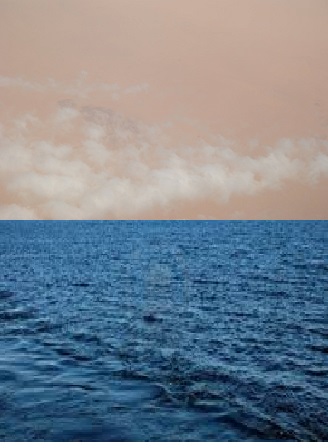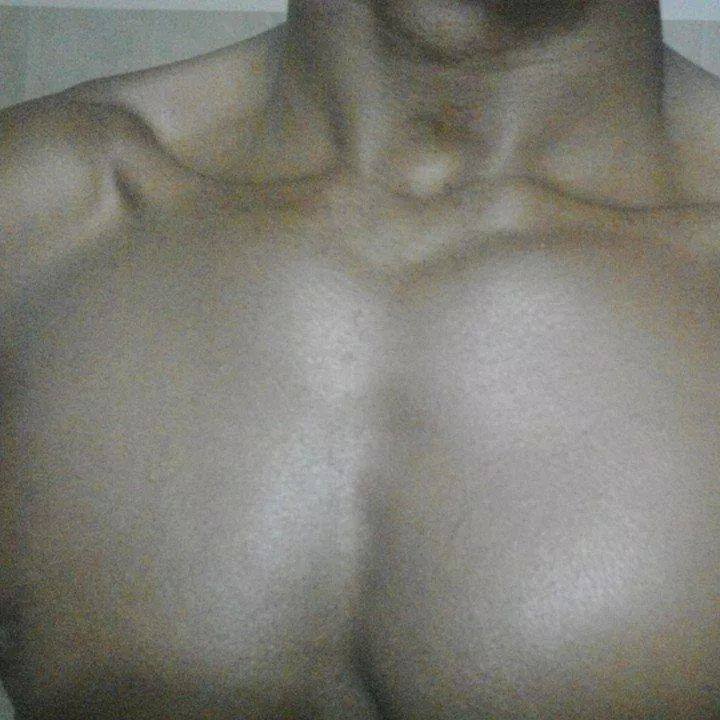SAHARA TO SICILY: MY STORY PART ONE BY TARRUS SPS
I go by the nickname Tarrus SPS. I made this dangerous 3 month trip through the Sahara Desert and across the Mediterranean Sea for so many reasons: to have a better living, to have a better tomorrow without depending on other people for help, and to make my mum and my entire family so proud of me. Inshallah, if I get my documents I will struggle a lot and I won’t rest until I am amongst the best. I wanted something I never had. Here is my story.
We begin the risky journey newly from Agadez. It’s the village/town where the desert begins from Niger; we started the journey on Sunday night. The desert is so big it’s like another world and it’s full of rebels so it’s all about contacts and connections. The soldiers of Niger escorted us so that we had protection from the desert rebels and safe passage through the main check points where you must pay money, but may be beaten or jailed. We were guarded on a 4 wheel Toyota as part of a convoy of four of the same vehicles with our food and water. Each car contained 35 to 40 people and first we sat inside the car and arranged ourselves, and they placed the mini tanks of fuel with some 20liters of fuel. Then they arranged our bags and forced a pair of strong long sticks through the sides and backs of the vehicles. We were packed just like animals with a high number of people and even to shift gears it’s a problem. Those of us at the sides held a stick for protection.
The drivers got drunk before driving and they kept smoking cannabis and cigarettes and drove so roughly. Sometimes a person would fall off, sometimes the drivers stopped and sometimes they did’t bother. Some of the people were wounded so badly that they die, and some fell on big stones and have serious wounds and injuries. Some of us received broken teeth just being in the vehicle. One of my brothers held the other the whole time through the desert. The soldiers left us on our own after driving for about 2 and a half hours.
When the car runs for a whole night we rest in the middle of the desert where you see absolutely nothing but sand. There are a few villages in the desert where we relax and rest and get more water. The United Nations has dug two borehole wells in Duroukou, a village in the desert, and also in Madamma at the border between Niger and Libya. The people in these villages have little money and are depending on travelers like us. Before we reached the border of Niger and Libya we saw uncountable graves; so many innocent souls lost their lives there. In some places they will not even have time to bury them cuz it’s not safe and the rebels can attack at any moment. When I saw these graves I always felt so afraid. Over and over I asked myself, had I known this journey was like this, would I still have come?
There are so many different nationalities making these journeys such as Nigerians, Malians, Senegalese, Ivoirians, Gambians, Somalis and Ethiopians. We keep crying and fearing death because we see many dead bodies and graves, dead cows and dead camels in the desert. They had dried out very quickly in the heat. The smell of fuel made many of us vomit inside the car others became sick because of the hotness of the sun. We did not even see a shadow or a tree, unless we reached a small village. We spent about four days in the desert in total. It’s just God who helps us cross it, on our third day all our food and water remains small. On the fourth day before we reached Libya, we had only one 1.5 liter bottle of water for 15 people. Somehow we managed and shared it until we reached the first town of Libya called, Baahe. In the desert there is only one option, it’s either you run the day or the day runs you. It’s a gamble, as they say about taking risks, if you win you will be happy, and if you lose, you will be wise. I lost a friend in the sea. We were not in the same boat but we were together from Niamey, the capital of Niger up to Tripoli. Billahi, so sad. But more about the sea journey later.
You may be wondering about my family back home, if they knew I was going and where I got the money to travel. Well, I didn’t tell anyone at home, not even my mum, only the two brothers who came with me knew. And my sister and uncle in France. It was from them that we each got the $2500 needed to make the trip in the end. It took almost a year to convince them to help us. At first, they would not agree. I was discouraged and so I sat down to think; I knew time wasn’t waiting for me and many of my friends had also travelled through this back way. So we kept putting on pressure and convincing them until finally they joined hands to help us.
I called my mum when I reached Baahe in Libya and I asked her to pray for us. She wasn’t angry afraid because the three of us went without telling her, but she was very afraid as she was hearing all the time that youths are losing their lives in this way.
Our time in Tripoli, Libya was not easy. I changed my CFAs to their currency, the dinar and found it’s cheap to eat and live there but the country is not steady and there are many criminals. They are called Asma boys and as a black African you must always look out for them. Then there is the place called Chart Palace where boys sit waiting for work. A car will come by and take a few boys for work. But it is risky as some will tell you there is work but will kidnap you instead and call your family for a ransom they must pay through local money transfer. Others will tell you they have a job while they are a gays looking for sex. We are used to sex tourism in our home countries, but there they are more direct and just tempting young boys with money. In Tripoli, they sometimes make you clean the house first, and then will pull out a gun. They have no mercy for black Africans. Some will be direct offering money for sex and if you refuse they keep adding to the amount offered, and if you still refuse they will insult your parents, known as zakoumba oumy in Arabic. I was lucky that I always found work away from Chart and I felt sorry for those who needed to go there.
In the end I spent 3 months in Tripoli waiting to take a boat across the sea. The Libyan navy is responsible for all the crossing transactions but they have an agent for each nationality of migrants and each of these have residences with a huge amount of people. Whoever is able to pay for the crossing will have their name taken down and then they take you to a big house called a ‘connection house’, in my case after two months and a few weeks. I stayed there for one week, locked in for our safety. They allowed maybe 2 or 3 people out each day to go to the supermarket to buy our supplies. We cooked in the connection house compound.
Most migrants are between the ages of 20-35 years old and ninety percent are male. The navy watches the weather conditions on the internet until it looks good. For me, I was separated from my brothers by this time, and I was taken to the beach side with 85 others and some of us pushed the fiber boat into the sea. We all entered and started to cross and prayed as we knew our lives were in grave danger.
I didn’t think I would survive but God must have helped us. In our boat we ran for two days in the international sea and got lost. Our navigator had three different rescue team’s numbers so he kept calling and communicating with them but they couldn’t see us. Then we saw a big ship heading to Asia and we sought help but they refused. Our navigator told the Italians that a big ship was close to us and they communicated with the ship’s captain who signaled us with the horn and released a step down. We got in and the ship turned and headed to Sicily. The ship was called STRIDE SINGAPORE TRANSPETROL. You are probably thinking that I am ‘lucky’ to survive this journey since we know 3000 people have died at sea making this crossing.
I am MORE than the word lucky.
When I look back, the desert was worse than the boat, but it is really difficult to say. Some lost their lives in the desert, and some lost their lives at sea. I miss my friend on the other boat who drowned so much.
So here I am in Salemi, Sicily, since September 17, 2014. I don’t understand the refugee system that much but they took prints of all of our ten fingers and put us in the system. They said we should face the commission to tell our story after we do a police report. I did that a couple of weeks ago, and the police were kind to us. They asked all about my family and my trip to Sicily. I have a place to live in a hotel and I take Italian lessons in the basement. Our hotel manager is responsible for everything for us but he is not treating us very well. Since we came here he has given us only two pieces of clothing and no shoes. We bought shoes with the little money we have left but now it is winter and we still have no jackets. We are communicating with some of our friends in other places; they’re doing better and living large. The Italian law says no one should spend more than 2 months in a camp/hotel without transferring you to a better place.
The old and new migrants decided to do a peaceful demonstration last week. We blocked the main busy junction from 6am to 12 noon to protest the length of time it is taking to get a hearing with the commission. The police negotiated with us and promised to do their best for us if we will be patient. Even then it won’t be easy. We are told they turn down 85% of migrants and if you appeal you must pay the lawyer’s fees. The U.N. used to pay for this, but not now. And now the Italians say they will no longer rescue people on boats.
All I can do now is wait. I just want to work and live a good life. I miss my mum and my family so much. I hope I can get my documents soon, get a job and someday visit them back home. I will put my faith in God. I know starting out at something new is always hard but, inshallah, better days are ahead. No living soul can stop that. /TSPS
On December 10, 1948 the General Assembly of the United Nations adopted and proclaimed the Universal Declaration of Human Rights • (1) Everyone has the right to freedom of movement and residence within the borders of each state. • (2) Everyone has the right to leave any country, including his own, and to return to his country.



